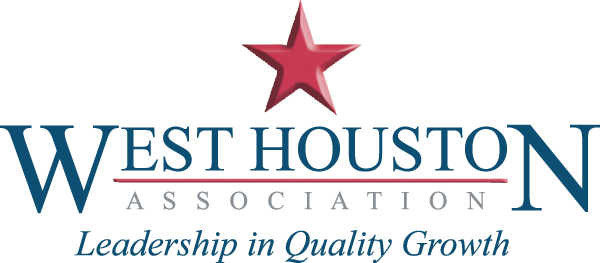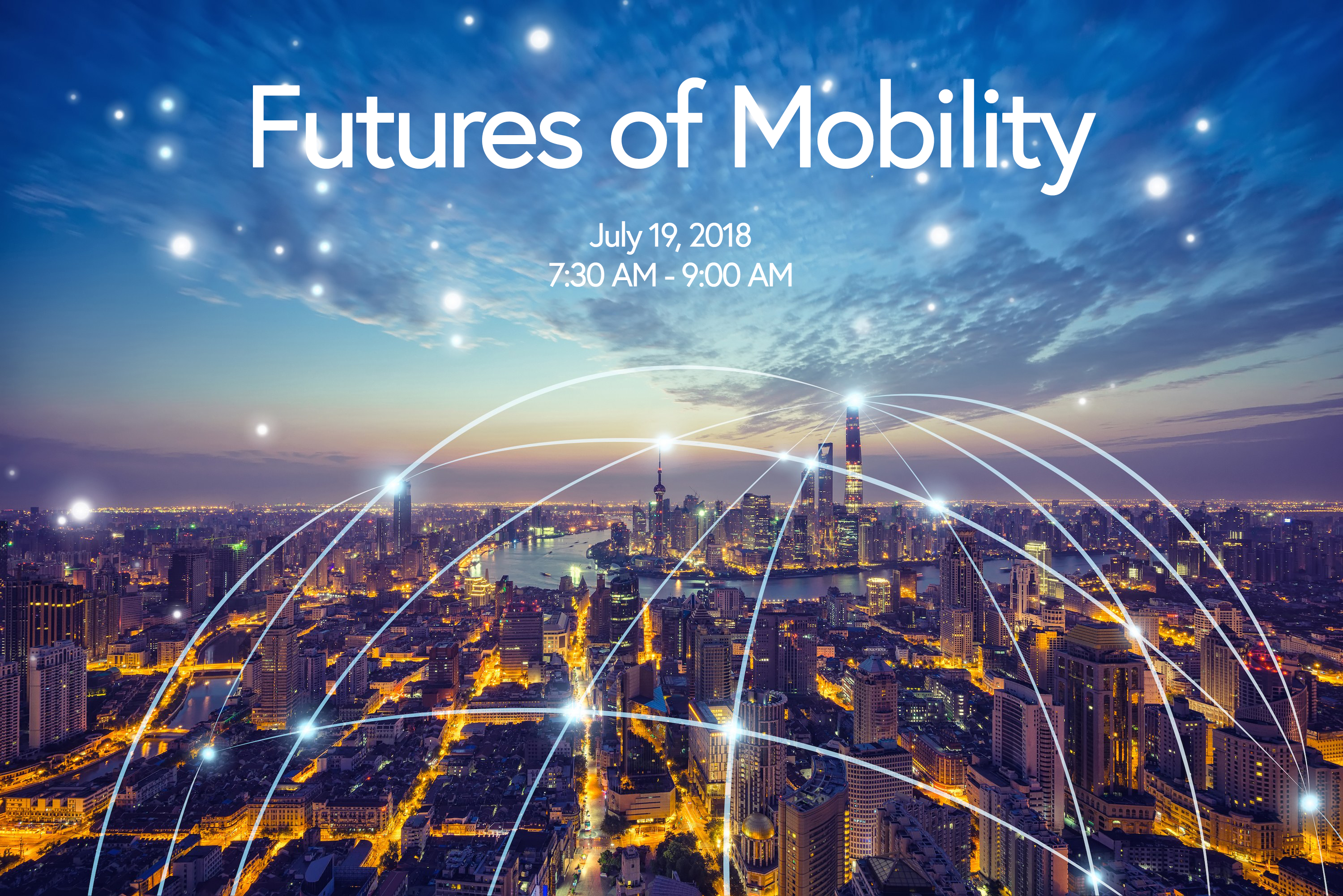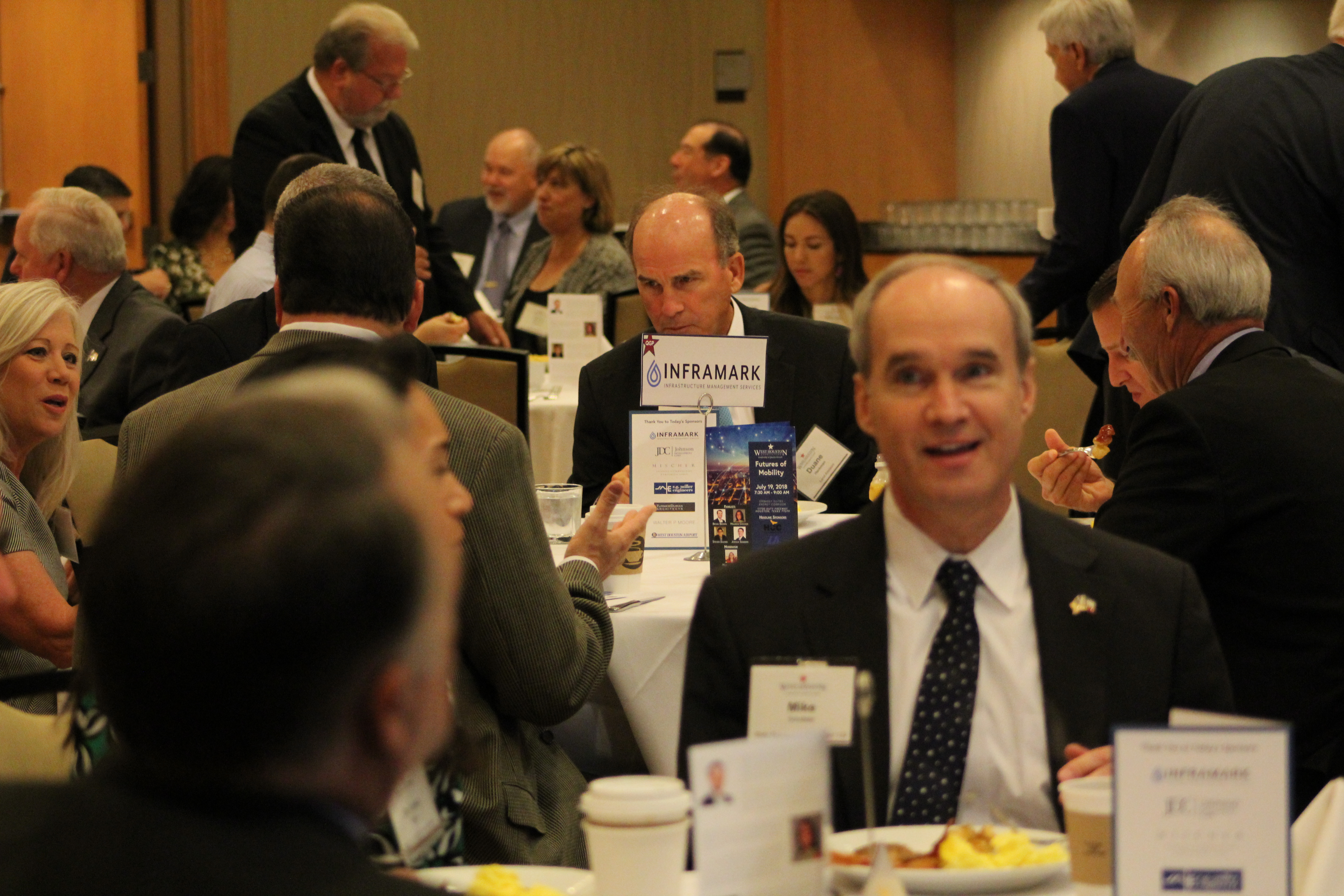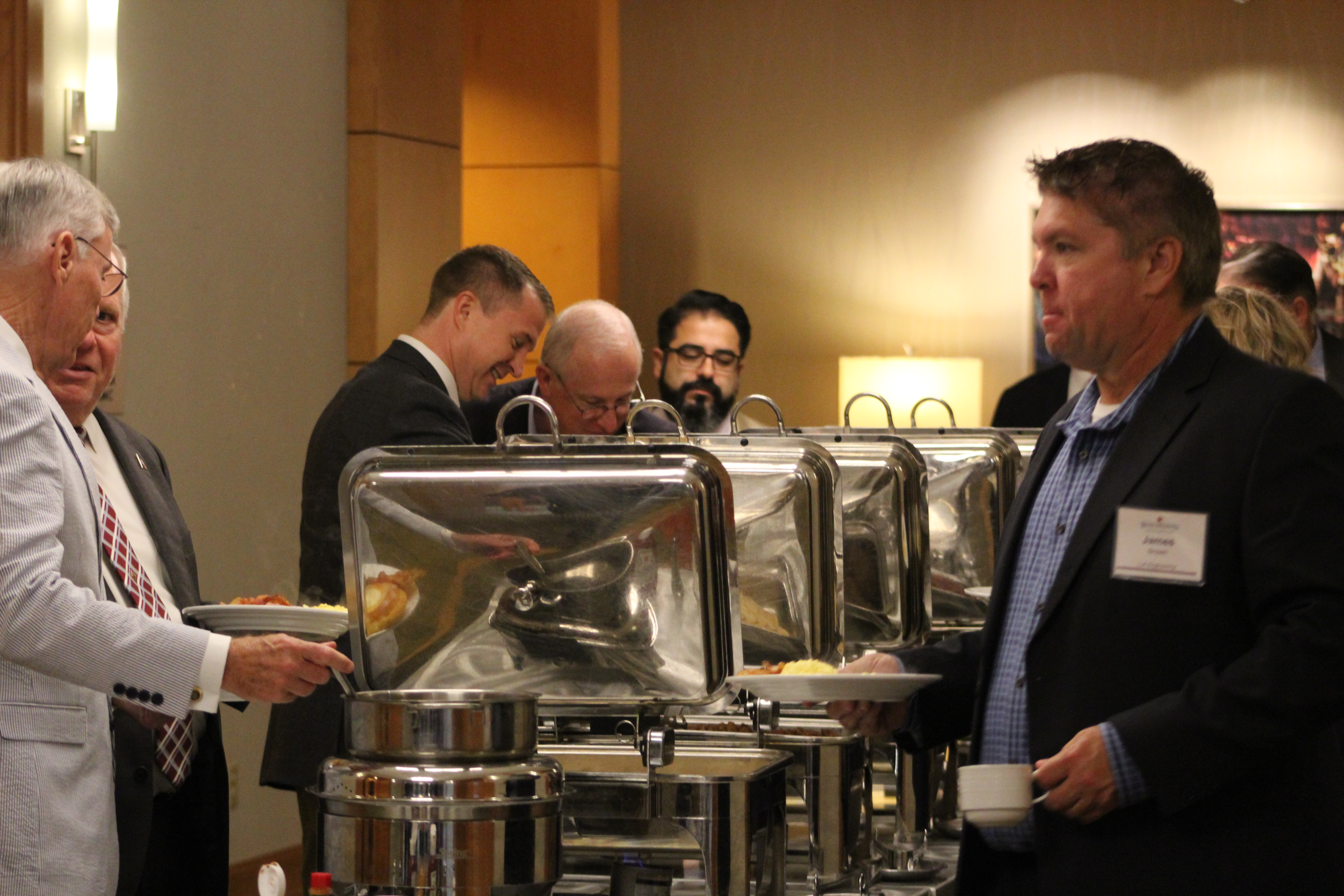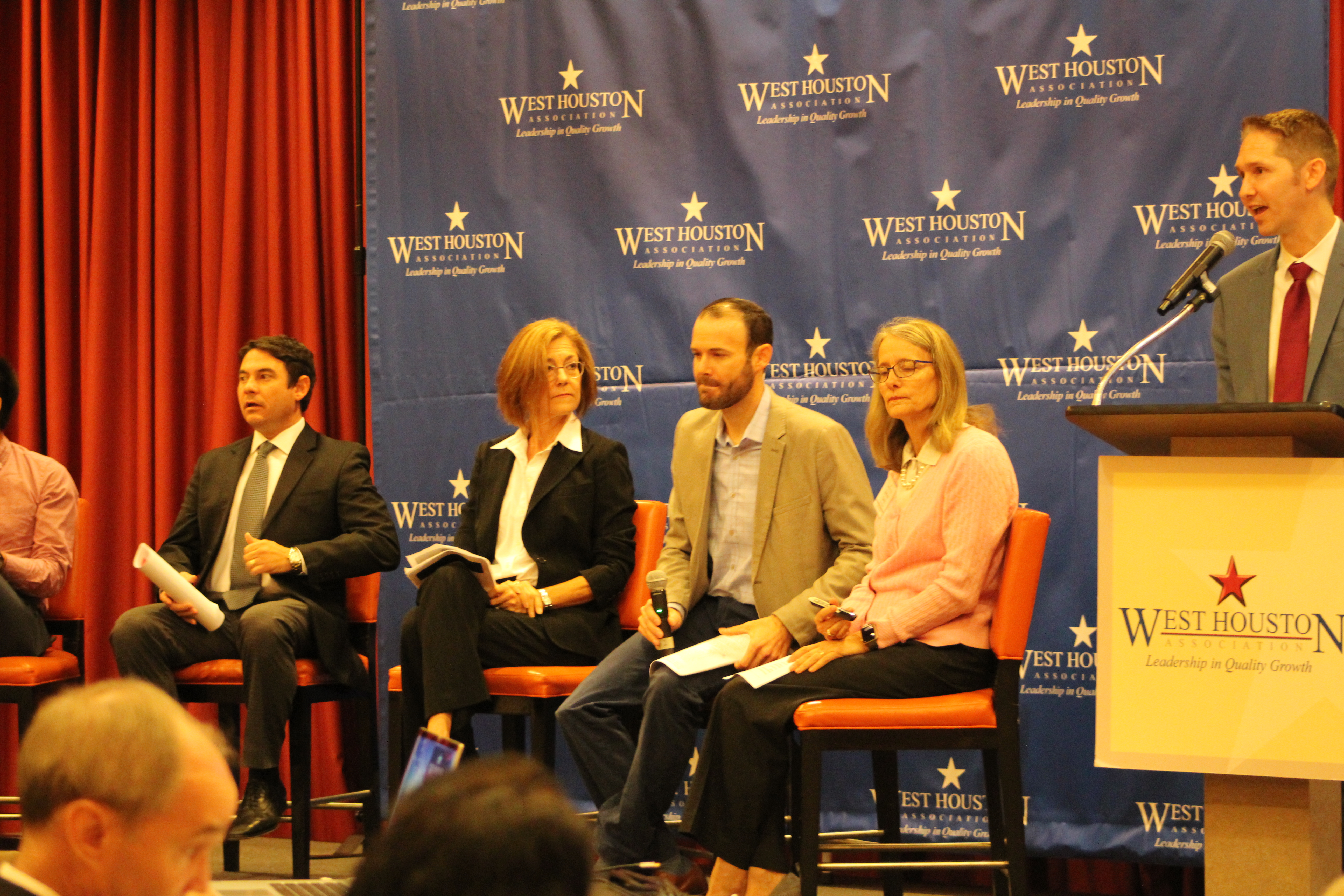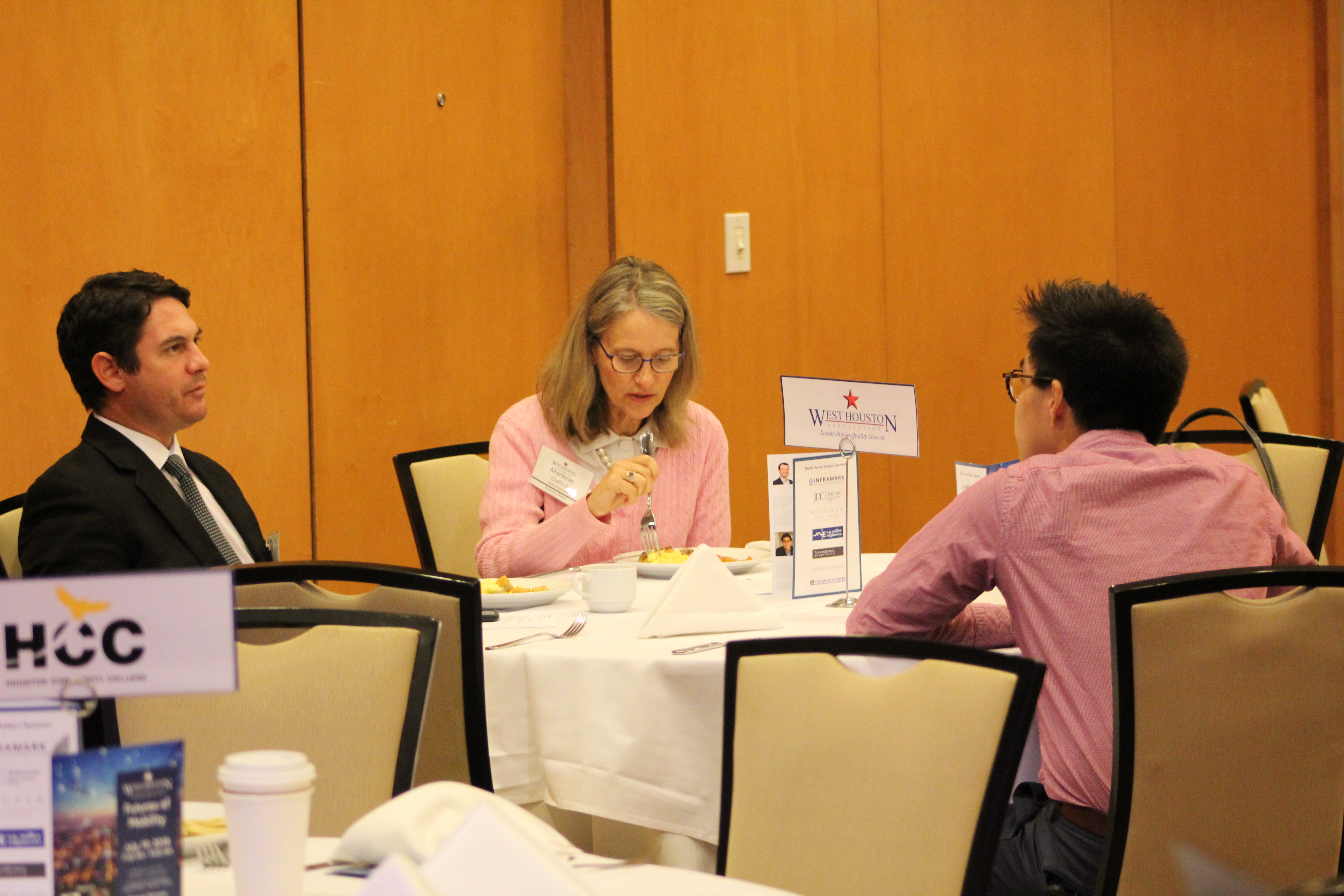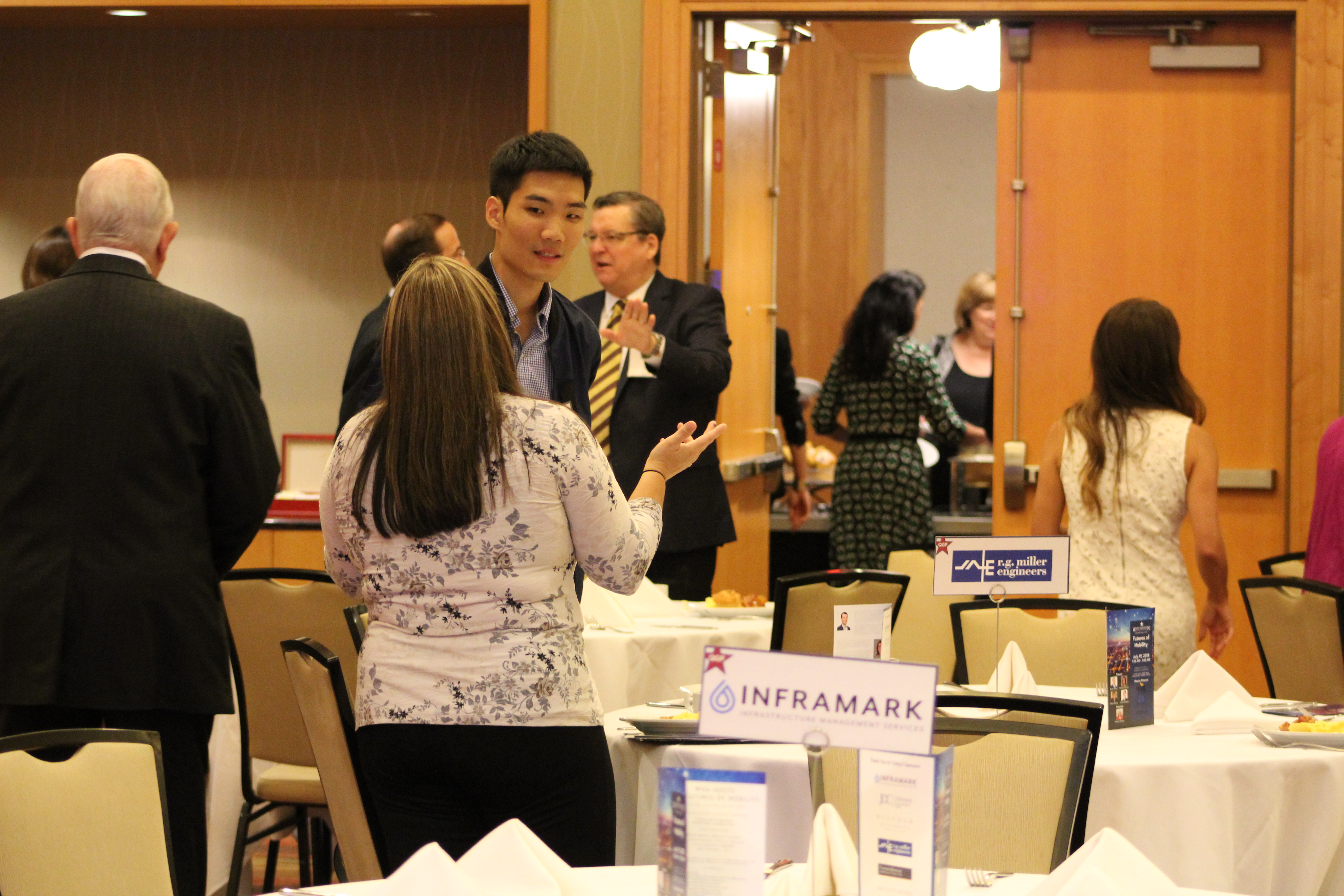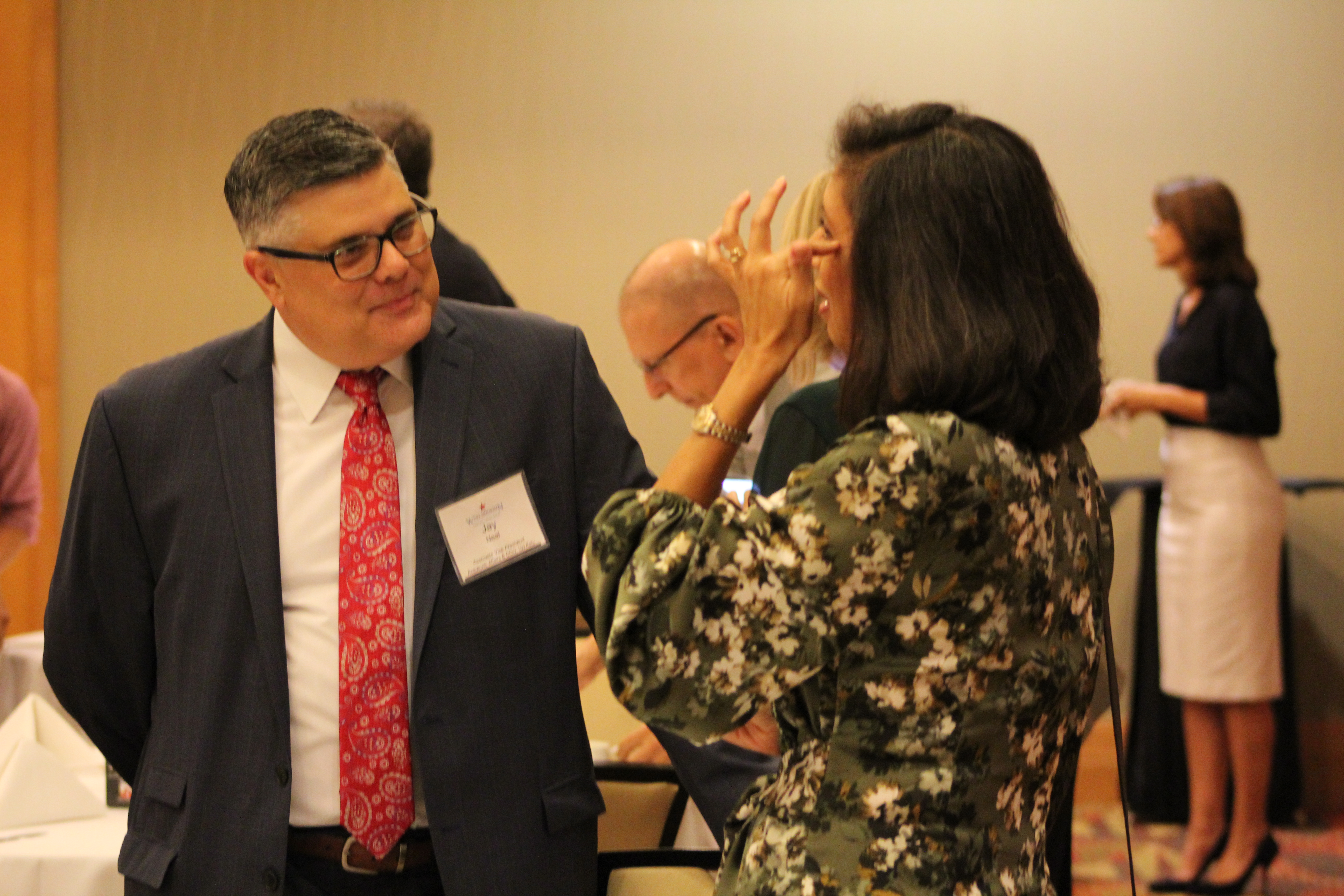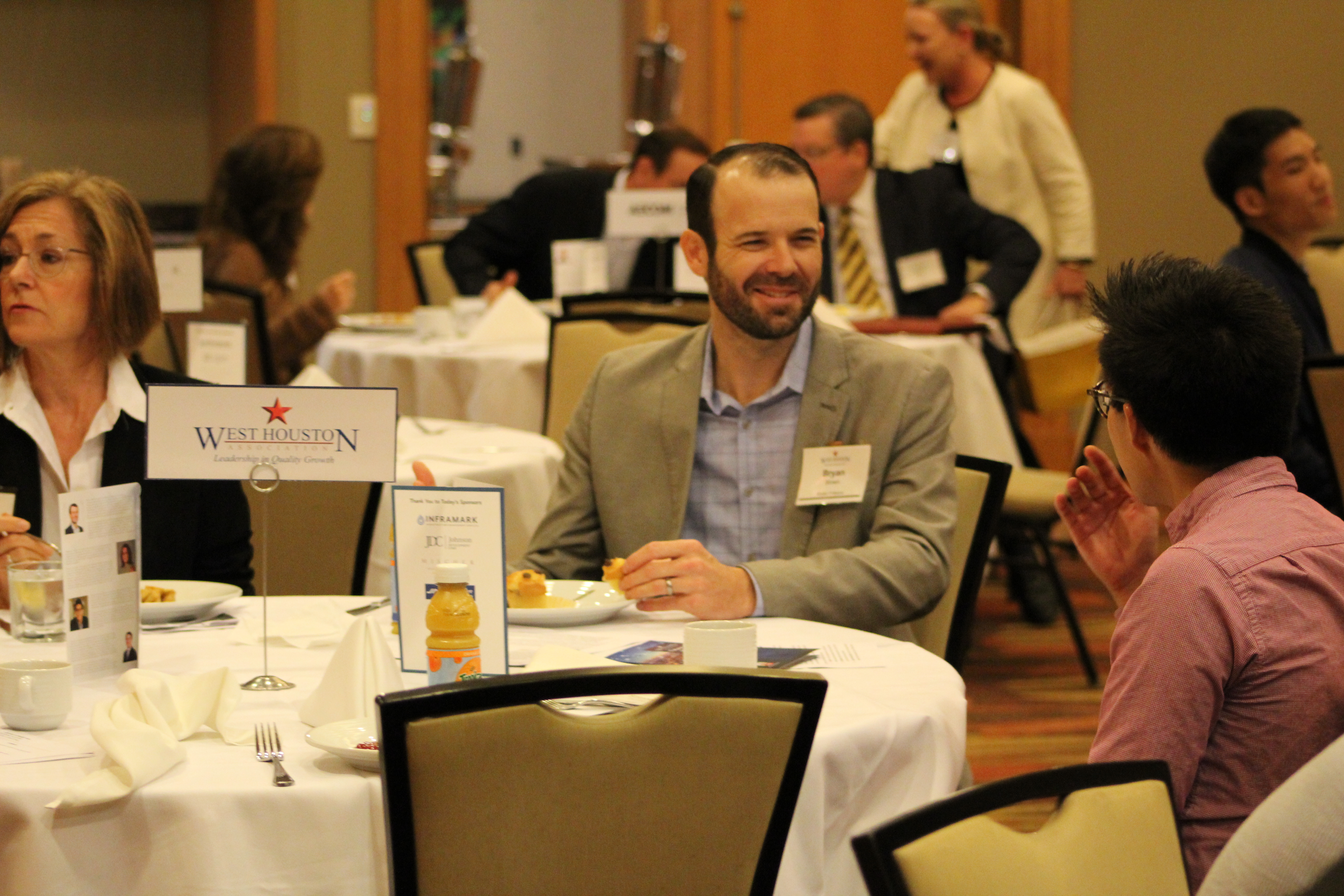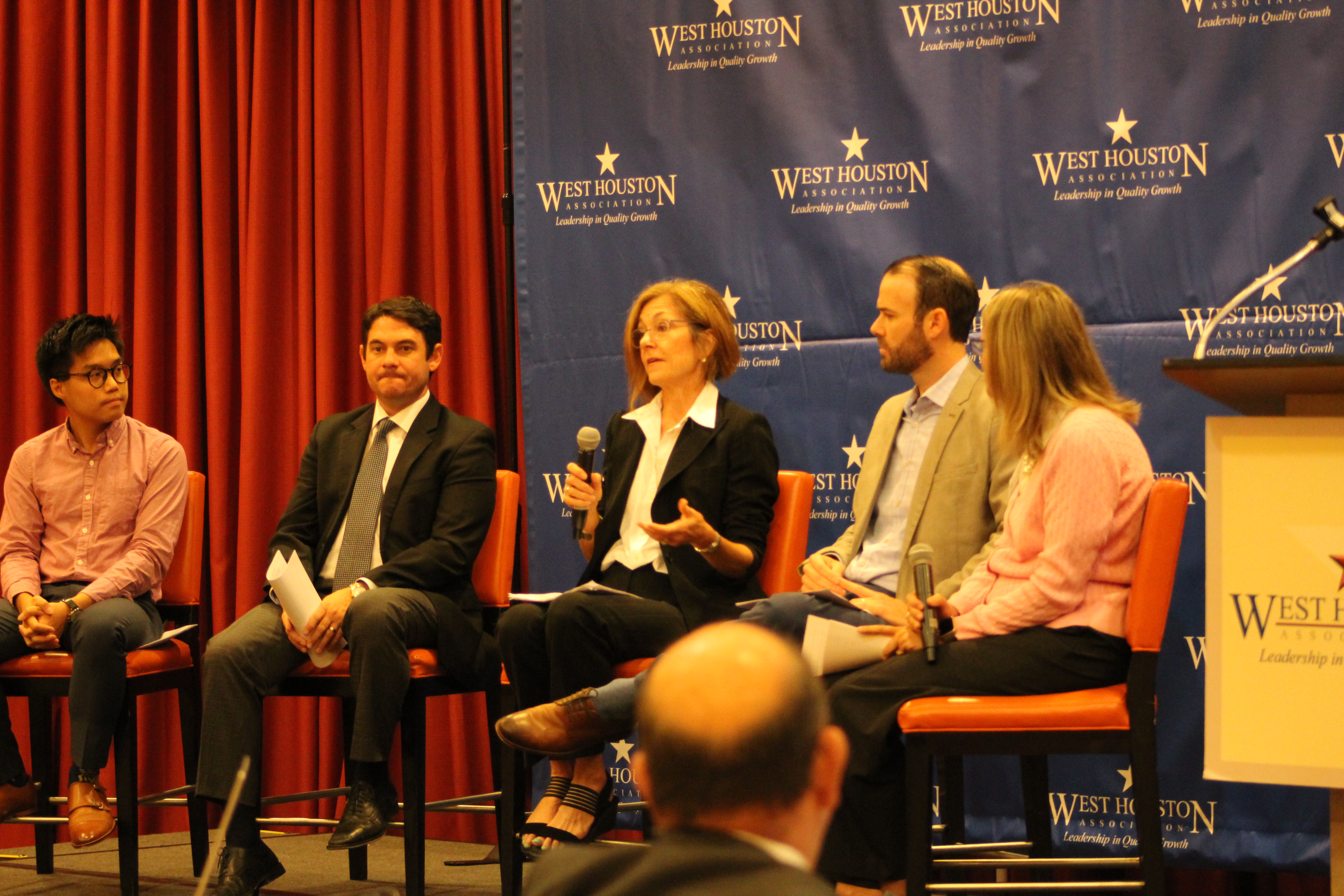On July 19th the WHA’s Regional Mobility Committee hosted a successful Future’s of Mobility Forum breakfast event at the Embassy Suites – Energy Corridor. Committee Chair, Marlene Gafrick, moderated a panel made up of the following experts:
 Bryan Brown: Walter P Moore
Bryan Brown: Walter P Moore
 Maureen Crocker: City of Houston
Maureen Crocker: City of Houston Steven Duong: AECOM
Steven Duong: AECOM Josh Sanders: Lyft
Josh Sanders: Lyft
Each panelist gave a short presentation about potential transportation opportunities coming to this region and the technology behind these advancements. The group agreed that the expectation for mobility is changing and so must the industry. An example of just how much change is taking place is the fact that many individuals between the ages of 16 and 24 are now not getting driver’s licenses due to the variety of alternative transportation methods available.
Josh Sanders with Lyft began his presentation by asked the group who drove to the event this morning alone in their vehicle. Almost every hand in the audience was raised. Sanders pointed out that each one of us added 3+ empty seats on the roads that take up space and serve no purpose during many of our trips. One way to cut down on congestion and wasted rider space will be to get riders in the same vehicles. The industry is starting to look at mobility as a service rather than a product and is using technology to individualize the rider’s transportation experience.
Technology is not only being used for new projects but also to help reduce congestion due to traffic light malfunctions. Maureen Crocker from the City of Houston reported that the City is working to improve their response time by using a program and provide a faster solutions to alert technicians about traffic light malfunctions that cause traffic backup. The panelists discussed the importance of not only looking to the future projects but working together to utilize the existing infrastructure.
Bryan Brown with Walter P. Moore and Sanders discussed the integration of automated vehicles into the existing mass transit system to help create a smoother transition for first mile last mile movement. Steven Duong from AECOM, presented on the ideas of the hyperloop technologies and reported that the Texas route (Houston–Laredo–Dallas) has been chosen as a winner of Hyperloop One’s Global Challenge. Alongside showing that this futuristic technology is not very far away for Houston, Duong explained how much this technology has advanced in such a short time already. The hyperloop technology could not only be used for passenger transportation but could be utilized for delivery and freight reducing the amount of surface congestion due to freight transportation. This region should start thinking about how the hyperloop will affect land use and view hyperloop transportation as a very real part of our future. To prepare for the technology changes that are inevitable and some would say invaluable, the policy conversations need to start now so Houston can adapt smoothly and become a leader in transportation innovation.
WHA is very thankful to our panelists who gave their time to speak to our members as well as our Regional Mobility Committee for their work in bringing this event together. The forum was boasted as a large success and many were interested in hearing more on what our panelists have to say. Soon you will be able to visit WHA’s past events page to see event photos, video, program and sponsors.
